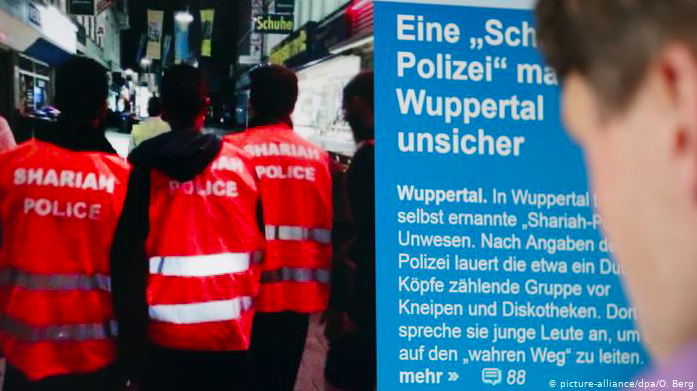“Sharia police can intimidate” – Interview with Mathias Rohe in Deutsche Welle
In an Interview with Deutsche Welle (19 May 2019), EZIRE Director Mathias Rohe talks about the new trial against the members of the so-called Sharia Police in Wuppertal. Rohe welcomes this step and at the same time warns against generalisations.
According to Rohe, it is right to reopen the process once more. The Federal Court of Justice had rightly pointed out that one had to take a closer look here to see whether there were individual population groups on whom a Sharia police force had an intimidating effect. This circumstance would then lead to a uniform ban ultimately taking effect. A Sharia police would primarily affect the Muslim population in this country and could make them feel intimidated in a criminal way. But also to non-Muslims the action Sharia police could have an intimidating effect, in times of violent Islamist extremism manifesting itself also in Germany. Even if the self-crafted vests could be dismissed as tomfoolery, it could develop into a radicalization. In these cases it is necessary to pursue prevention and possibly also to recourse to deradicalization measures.
Legally one must hold however that tomfoolery is not a criminal offence. Therefore, care must be taken to comply with the rule of law. Where the limits of criminal law have been crossed, intervention is necessary – where these limits have not yet been reached, not only a broad social debate, but also appropriate measures to prevent developments are needed.
Criminal law undoubtedly also has a signal effect. One could speak of the so-called general prevention: offenders are also punished in order to deter others from such crimes. Resocialisation also plays a role – the perpetrator should be put on the right path by the punishment. Criminal law as a whole serves to establish an indispensable minimum of common rules of conduct. Those who do not adhere to them must be put in their place with all clarity.
Appropriate forms of dealing with the phenomena of a Salafist or possibly politically inspired Islam are, beyond the law, located above all in the areas of education, training and prevention. The law could indeed force or even prohibit certain behaviours. However, the formation of convictions largely takes place outside the application of concrete legal provisions. This is a question of family upbringing and the social environment. One could start there by making Islamic religious lessons in our schools possible. This would lead the coming generations to an attitude compatible with democracy and the rule of law and enable them to position themselves independently to their religion.
Fortunately, the vast majority of Muslims are peaceful and follow this direction. The others must be put in a position to deal with and refute extremist ideas and ideas which are also based on Islamic sources. In the meantime, attempts are being made to counter this great task with prevention and deradicalization measures. This was to be welcomed, but could be further expanded. But it is also important – and this concerns the entire society – not to place Islam or Muslims under general suspicion. That would be grossly wrong. Unfortunately, there are now political parties that are going in this direction, i.e. that are not exercising only concrete, factual criticism. And one had to oppose that Islamists as well as Islam-haters in the end should not gain the sovereignty of discourse.
In the total population there´s a very widespread uncertainty, that is why existing problems must be tackled in a completely clear and unbiased way. It becomes dangerous when it is said that Islam cannot do otherwise, that violence inevitably arises from this religion. This contradicted all scientific findings based on facts. The Constitutional Court had repeatedly confirmed that it did not examine the writings of any religions for constitutional conformity, but only the behaviour of affected people who belonged to this religion.
However, there´s an abstract fear of Islam. One has to be careful not to fall into the trap of the Islamophobic propagandists. It´s necessary to keep the middle of society together, but also to counter the fears that were often stirred up without a factual basis. Otherwise many people in our society would be forced into a corner into which they did not belong and into which they did not want to go.
